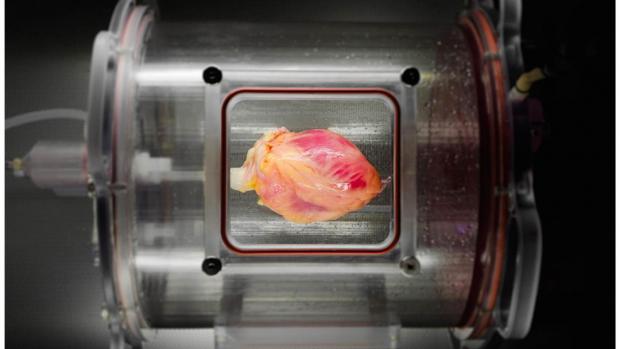
Breaking News
Importing Poverty into America: Devolving Our Nation into Stupid
 Grand Theft World Podcast 273 | Goys 'R U.S. with Guest Rob Dew
Grand Theft World Podcast 273 | Goys 'R U.S. with Guest Rob Dew
 Anchorage was the Receipt: Europe is Paying the Price… and Knows it.
Anchorage was the Receipt: Europe is Paying the Price… and Knows it.
 The Slow Epstein Earthquake: The Rupture Between the People and the Elites
The Slow Epstein Earthquake: The Rupture Between the People and the Elites
Top Tech News
 Drone-launching underwater drone hitches a ride on ship and sub hulls
Drone-launching underwater drone hitches a ride on ship and sub hulls
 Humanoid Robots Get "Brains" As Dual-Use Fears Mount
Humanoid Robots Get "Brains" As Dual-Use Fears Mount
 SpaceX Authorized to Increase High Speed Internet Download Speeds 5X Through 2026
SpaceX Authorized to Increase High Speed Internet Download Speeds 5X Through 2026
 Space AI is the Key to the Technological Singularity
Space AI is the Key to the Technological Singularity
 Velocitor X-1 eVTOL could be beating the traffic in just a year
Velocitor X-1 eVTOL could be beating the traffic in just a year
 Starlink smasher? China claims world's best high-powered microwave weapon
Starlink smasher? China claims world's best high-powered microwave weapon
 Wood scraps turn 'useless' desert sand into concrete
Wood scraps turn 'useless' desert sand into concrete
 Let's Do a Detailed Review of Zorin -- Is This Good for Ex-Windows Users?
Let's Do a Detailed Review of Zorin -- Is This Good for Ex-Windows Users?
 The World's First Sodium-Ion Battery EV Is A Winter Range Monster
The World's First Sodium-Ion Battery EV Is A Winter Range Monster
 China's CATL 5C Battery Breakthrough will Make Most Combustion Engine Vehicles OBSOLETE
China's CATL 5C Battery Breakthrough will Make Most Combustion Engine Vehicles OBSOLETE
Stripping donor hearts and repopulating them with recipient-derived stem cells

In an effort to ensure a steady supply of compatible organs, a team of scientists from Massachusetts General Hospital (MGH) is working on ways to create bioengineered human hearts by first stripping donor hearts of cells that could provoke an immune response in a potential recipient, and then using the recipient's own induced pluripotent stem cells (iPSCs) to generate cardiac muscle cells that can be used to repopulate the heart in an automated bioreactor system.
Every year, 800,000 people worldwide have heart conditions that require a transplant. Unfortunately, there are only enough suitable donor hearts for around 3,500 operations. Part of the reason for this isn't that there aren't enough healthy hearts donated to go around, but that a heart needs to be biologically compatible with the recipient.
And even if there is an extremely close tissue match, the recipient's body will treat still the new heart as alien and attack it. To prevent this tissue rejection, the recipient's autoimmune system must be suppressed by a battery of pills for a lifetime, combined with another battery of pills to correct the damage caused by suppressing the immune system.



